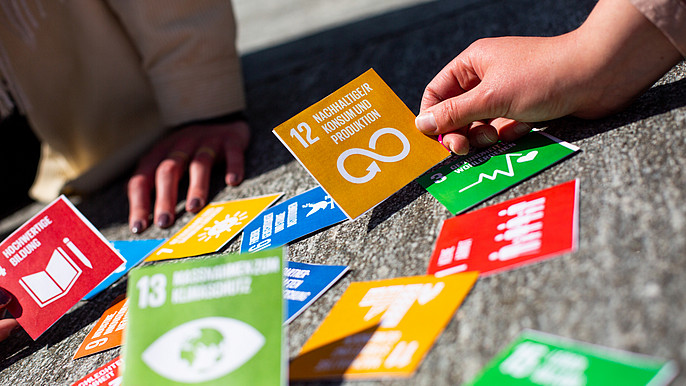Sustainability Research
This page contains automatically translated content.

The development towards a more sustainable way of life is one of the major global challenges of our time. To meet it, we need smart scientists who network and work in an interdisciplinary and transdisciplinary way.